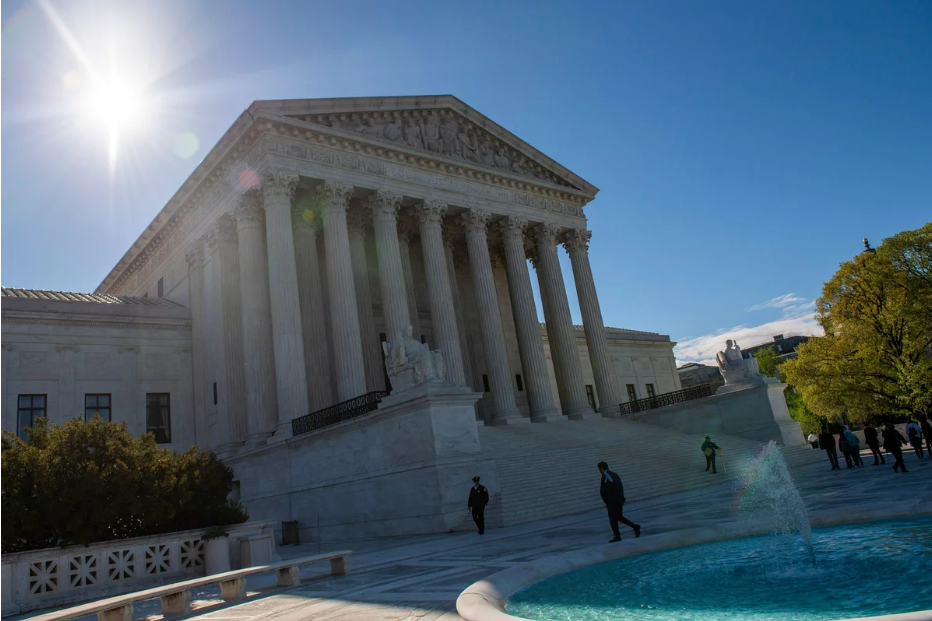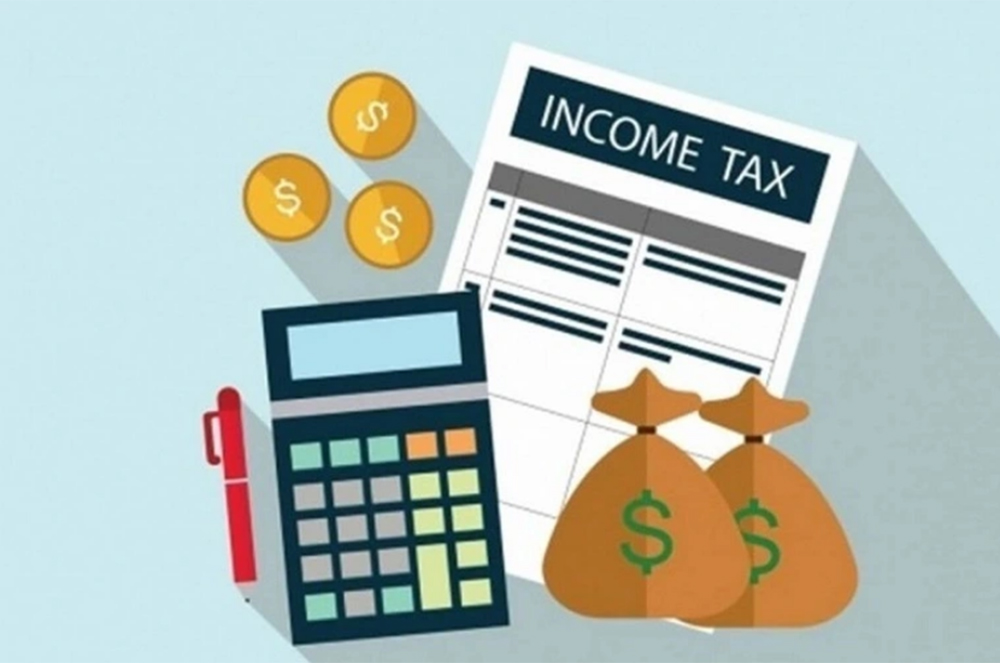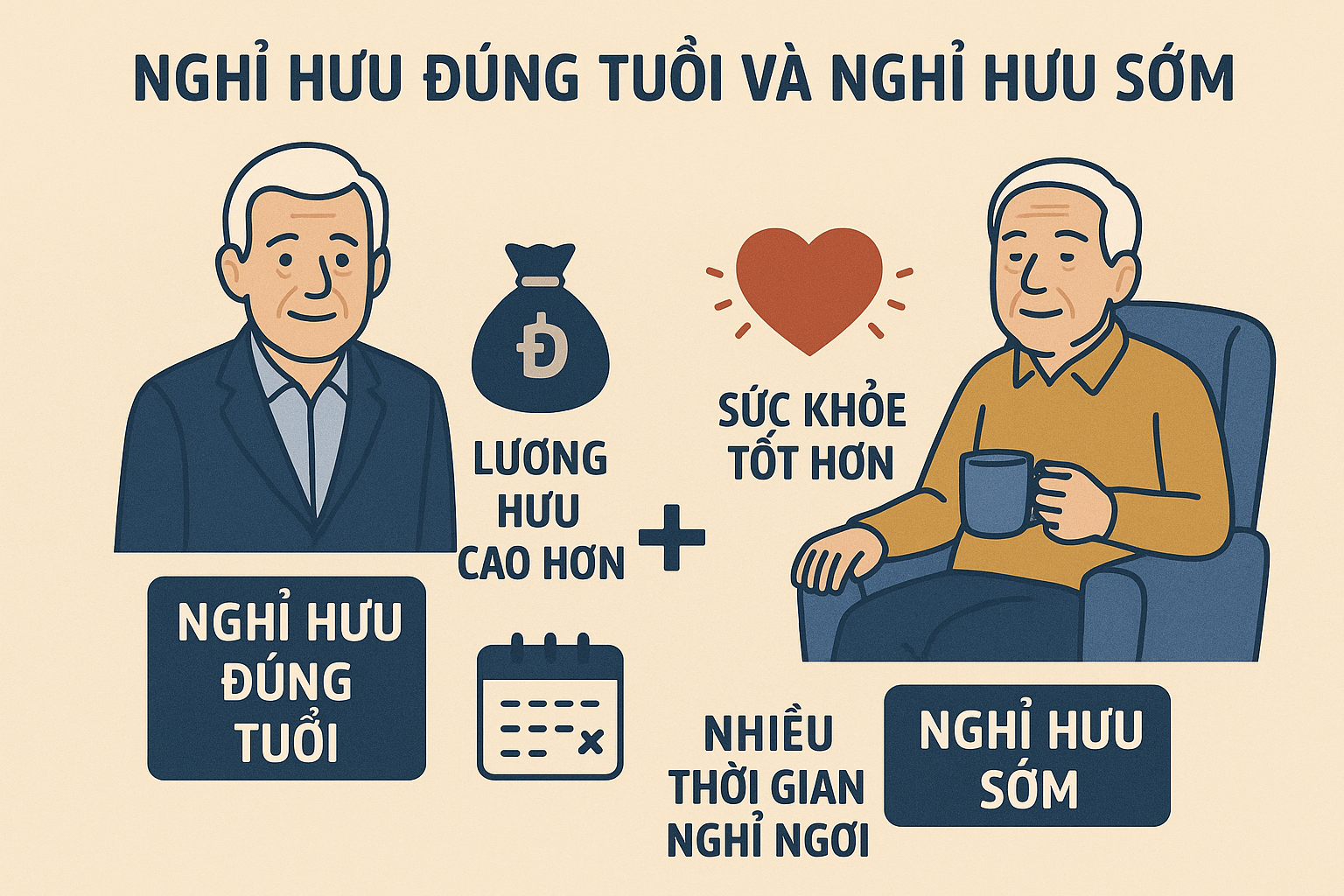
Supreme Court Overturns Precedent In Property Rights Case — A Sign Of Things To Come?/ Tòa án tối cao Hoa Kỳ đã lật ngược tiền lệ trong vụ án quyền tài sản - Dấu hiệu của những điều sắp xảy ra
A sharply divided U.S. Supreme Court ruled Friday that property owners can go directly to federal court with claims that state and local regulations effectively deprive landowners of the use of their property.
The 5-4 decision overturned decades of precedent that barred property owners from going to federal court until their claims had been denied in state court.
Federal courts are often viewed as friendlier than state courts for such property claims. The decision, with all five of the court's conservatives in the majority, may have particular effects in cities and coastal areas that have strict regulations for development.
Property owners and developers often have complained that zoning rules and other state and local regulations effectively take their property for public benefit, and that the Constitution requires that they be paid just compensation.
The court's decision came in the case of Rose Mary Knick, who owns 90 acres of land in Scott Township, Pa. Knick's home and a grazing area for her horses are on the land, as well as a small cemetery where her neighbors' ancestors are allegedly buried. See the case
When the town enacted a rule requiring all cemeteries be open to the public during daytime hours, Knick went to state court seeking a judgment that the state had in effect taken her property. When the town withdrew its notice that she was violating the local cemetery law, the state court said Knick could not prove that she was being harmed.
So, she went to the federal courts, which threw out her case based on decades-old Supreme Court decisions that have consistently required property owners to go to the state courts before appealing to the federal courts.
On Friday, however, the U.S. Supreme Court reversed the first of those decisions, a 1985 ruling that required property owners to take their complaints to the state courts first. Instead, the court majority said Knick and other property owners seeking compensation for limits on their property rights may go directly to federal court.
"We now conclude that the state litigation requirement imposes an unjustifiable burden" on a property owner's claim that his or her land has been effectively taken for public benefit without the government paying just compensation, wrote Chief Justice John Roberts.
In essence, Roberts said, property owners are entitled to the same rights in federal court that other citizens have if they can prove that their constitutional rights have been violated.
Justice Elena Kagan, joined by the court's three other liberal justices, dissented in furious tones. Friday's decision, she said, "rejects far more than a single decision in 1985." That decision, Williamson County Regional Planning Commission v. Hamilton Bank of Johnson City, "was rooted in an understanding of the Fifth Amendment's Takings Clause stretching back to the late 1800s, Kagan wrote.

The justices of the U.S. Supreme Court decided a property rights case that overturned decades of precedent. Eric Baradat/AFP/Getty Images
On that view, a government could take property so long as it provided a reliable mechanism to pay just compensation, even if the payment came after the fact," Kagan said, adding, "No longer."
In conflict with "precedent after precedent," she said, the majority holds that a government violates the Constitution whenever it takes property without advance compensation, no matter how good its commitment to pay. The consequence, she added, is "to channel a mass of quintessentially local cases involving complex state-law issues into federal courts."
The "entire idea" of abiding by precedent, she said, is that "judges do not get to reverse a decision just because they never liked it in the first instance." Rather, she said, they need a reason other than that the precedent was wrongly decided.
"It is hard to overstate the value, in a country like ours, of stability in law," said Kagan, pointing so a similar observation by one of her colleagues just weeks ago.
On May 13, Justice Stephen Breyer chastised his conservative colleagues for reversing a precedent on a question that rarely arises: "Today's decision can only cause one to wonder which cases the Court will overrule next."
"Well that didn't take long," opined a caustic Kagan. "Now one may wonder yet again."
https://www.npr.org/2019/06/22/734919303/supreme-court-overturns-precedent-in-property-rights-case-a-sign-of-things-to-co
-------------Vietnamese transcription-------------------
Tháng 6-2019, Tòa án Tối cao Hoa Kỳ đã đưa ra phán quyết rằng chủ sở hữu tài sản có thể khởi kiện ngay đến Tòa án liên bang đối với yêu cầu rằng những quy định của địa phương và tiểu bang thực sự tước đi quyền sử dụng tài sản của họ.
Quyết định 5-4 đã lật ngược một tiền lệ đã có từ hàng thập kỷ qua tại Mỹ rằng chủ sở hữu tài sản không được khởi kiện trực tiếp tại Tòa án liên bang cho đến khi yêu cầu của họ bị Tòa án bang từ chối.
Tòa án liên bang thường được xem là thân thiện hơn so với các Tòa án tiểu bang cho các yêu cầu về tài sản như vậy. Quyết định này có thể có những ảnh hưởng đặc biệt tại các thành phố và khu vực ven biển nơi có các quy định nghiêm ngặt để phát triển.
Chủ sở hữu tài sản thường phàn nàn rằng các quy tắc phân vùng và các quy định khác của tiểu bang và địa phương thực sự đã tước đi tài sản của họ vì lợi ích công cộng, trong khi Hiến pháp quy định họ được trả tiền đền bù.
Phán quyết của Tòa án được đưa ra trong vụ án của Rose Mary Knick, người sở hữu 90 mẫu đất ở Scott Town, nhà và một khu chăn thả ngựa của Pa.Knick trên đất, cũng như một nghĩa trang nhỏ nơi tổ tiên của hàng xóm của cô được chôn cất. Xem án lệ
Khi thị trấn này ban hành một quy định yêu cầu tất cả các nghĩa trang phải mở cửa cho công chúng vào ban ngày, Knick đã đến Tòa án tiểu bang để yêu cầu Tòa án ra phán quyết rằng tiểu bang đã lấy đi tài sản của cô. Khi thị trấn rút thông báo rằng cô đang vi phạm luật nghĩa trang địa phương thì Tòa án bang nói rằng Knick không thể chứng minh rằng cô đang bị thiệt hại.
Vì vậy, cô đã khởi kiện đến Tòa án liên bang nhưng họ đã căn cứ vào các phán quyết của Tòa án Tối cao đã có từ hàng thập kỷ trước rằng chủ sở hữu tài sản phải khởi kiện ra Tòa án bang trước khi kháng cáo lên Tòa án liên bang để không giải quyết yêu cầu của cô.
Tuy nhiên, vào thứ Sáu, Tòa án Tối cao Hoa Kỳ đã đảo ngược phán quyết năm 1985 với nội dung chủ sở hữu tài sản phải khiếu nại lên Tòa án tiểu bang trước. Thay vào đó, Tòa án cho rằng Knick và các chủ sở hữu tài sản khác có thể khởi kiện trực tiếp tại Tòa án liên bang để yêu cầu đền bù cho việc giới hạn về quyền tài sản của họ.
"Bây giờ chúng tôi kết luận rằng yêu cầu kiện tụng của tiểu bang đã áp đặt một gánh nặng vô lý" đối với khiếu nại của chủ sở hữu tài sản rằng đất của họ đã thực sự bị lấy đi vì lợi ích công cộng mà không được chính phủ trả tiền bồi thường, Chánh án John Roberts viết.
Về bản chất, Chánh án Roberts cho biết, chủ sở hữu tài sản có quyền tương tự như các công dân khác tại Tòa án liên bang nếu họ chứng minh được rằng các quyền được ghi nhận trong hiến pháp của họ đã bị xâm phạm.
Thẩm phán Elena Kagan, cùng với ba Thẩm phán khác của Tòa án, đã phản ứng mạnh mẽ đối với phán quyết này. Cô nói: "Phán quyết hôm thứ sáu vừa rồi đã bác bỏ nhiều hơn một phán quyết năm 1985". Quyết định đó, phán quyết giữa Ủy ban Kế hoạch Khu vực Quận Williamson với Ngân hàng Hamilton của Thành phố Johnson, "bắt nguồn từ sự hiểu biết về Điều khoản Yêu cầu sửa đổi thứ năm kéo dài đến cuối những năm 1800, Kagan viết.
Theo quan điểm đó, chính phủ có thể lấy tài sản miễn là họ có cơ chế đáng tin cậy để chỉ trả tiền bồi thường, ngay cả khi khoản thanh toán đến sau thực tế, "Kagan nói.
Xung đột với "tiền lệ sau tiền lệ", bà nói, đa số cho rằng chính phủ vi phạm Hiến pháp khi họ lấy tài sản mà không bồi thường trước, bất luận cam kết trả tiền bồi thường của họ tốt như thế nào đi nữa. Hệ quả là một loạt các vụ án liên quan đến các vấn đề luật pháp của Tiểu bang sẽ được chuyển đến các Tòa án liên bang.
Ý tưởng chính về sự tồn tại mãi mãi của tiền lệ, là "các Thẩm phán không đảo ngược quyết định chỉ bởi vì họ không thích nó trong phiên sơ thẩm." Hay đúng hơn là họ cần một lý do khác với lý do tiền lệ đã được quyết định sai.
"Thật khó để cường điệu hóa giá trị về sự ổn định trong pháp luật ở một đất nước như đất nước chúng ta", Kagan đã chỉ ra một quan sát tương tự của một trong những đồng nghiệp của cô chỉ vài tuần trước.
Vào ngày 13 tháng 5, Thẩm phán Stephen Breyer đã chỉ trích các đồng nghiệp bảo thủ của mình vì đã đảo ngược tiền lệ bằng một câu hỏi hiếm khi được ông đưa ra: "Quyết định hôm nay chỉ có thể khiến người ta tự hỏi tiền lệ nào sẽ được Tòa án bãi bỏ tiếp theo."
Thanh Hà, https://anle.toaan.gov.vn/webcenter/portal/anle/chitietanlethegioi?dDocName=TAND095535
3 Comments
At vero eos et accusamus et iusto odio dignissimos ducimus qui blanditiis praesentium voluptatum deleniti atque corrupti quos dolores et quas molestias excepturi sint occaecati cupiditate non provident, similique sunt in culpa qui officia deserunt mollitia animi. Nemo enim ipsam voluptatem quia voluptas sit aspernatur aut odit aut fugit.










Lorem ipsum dolor sit amet, consectetur adipiscing elit, sed do eiusmod tempor incididunt ut labore et dolore magna aliqua. Ut enim ad minim veniam, quis nostrud exercitation ullamco laboris nisi ut aliquip ex ea commodo consequat cumque nihil impedit quo minus. Duis aute irure dolor in reprehenderit in voluptate.
Barbara Palson
3 days agoLorem ipsum dolor sit amet, consectetur adipiscing elit, sed do eiusmod tempor incididunt ut labore et dolore magna aliqua. Ut enim ad minim veniam, quis nostrud exercitation ullamco laboris nisi ut aliquip ex ea commodo consequat cumque nihil impedit quo minus. Duis aute irure dolor in reprehenderit in voluptate.
Daniel Adams
2 days ago